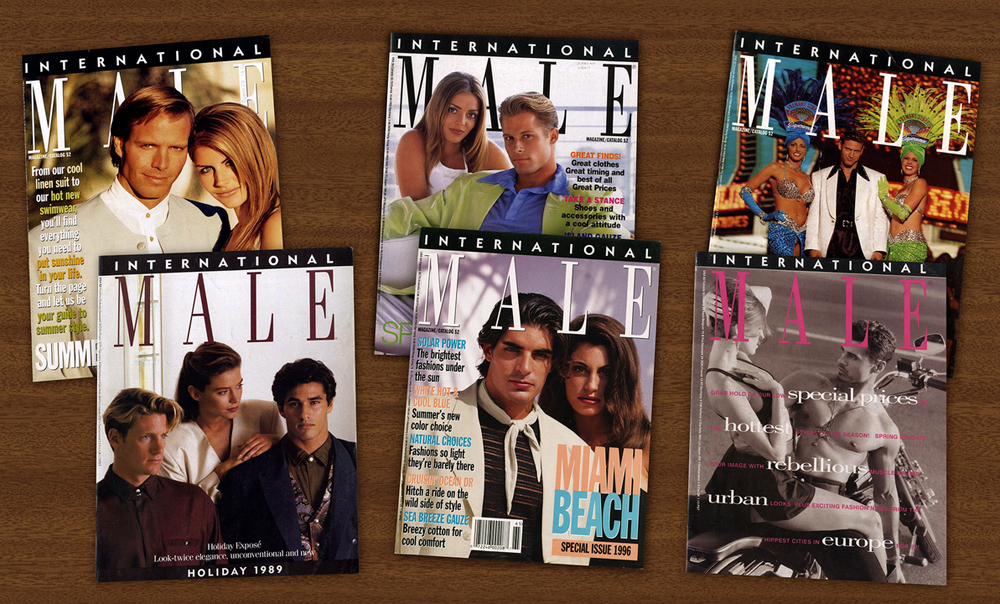“They’re selling feelings,” the stylist William Graper says in “All Man: The International Male Story,” speaking about a McDonald’s commercial where everyone can be seen smiling without really talking about the food. His point in Bryan Darling and Jesse Finley Reed’s engaging and introspective history of the men’s mail order catalog International Male covering its three-decade run is that what was actually for sale was besides the point when it came to the publication — early on, it’s noted that the catalog’s founder Gene Burkhard, when pressed for time in the early days of the operation, would let anyone on staff come up with their own fashion creations — and anyone who might be watching the documentary to learn more about clothes should know they’re discussed about as much as they were once worn by the scantily clad underwear models that graced its pages.
However, even if clothes may not make the man in “All Man,” Burkhard’s selling of a vision of an entire spectrum of masculinity, hitting people’s mailboxes right alongside Land’s End and Sears catalogs, is properly appreciated in Darling and Reed’s doc, which strikes just the right balance of respect for what Burkhard was able to accomplish and reveling the often ridiculous nature of the enterprise where the most avid readers were checking out the catalog for less noble purposes than looking for new underwear. “All Man” has just about as perfect an expository piece of archival as any filmmaker could wish to have for such a film, starting out with a Burkhard appearance on the game show “What’s My Line” with celebrity guests guessing at his profession. Indeed, it’s not the easiest thing to explain, but after Burkhard came across a jock-strap-like piece of apparel in a medical display store window in England, his belief there would be a market for it among the gay community in America was rewarded ten-fold, beginning with a small advertisement in The Advocate that led to an entire line of products and a direct-mail catalog to sell them.
While Burkhard resisted using words such as “sexy” and “hot” in descriptions of his featured products and never saw his audience as being exclusively gay, pictures of the buff models did most of the talking. Although it may not have been entirely intentional — Burkhard passed away in 2020 — the fact that he appears less and less as part of the story as the catalog’s influence grows becomes a fascinating analogy for a creation that surely outgrew its creator’s imagination for it as sales might’ve hummed along, but there were profound implications in presenting men as objects of desire as women had been for centuries and outfitting them in less traditionally gender specific colors and styles. Darling and Reed can’t be quite as adventurous in delivering International Male’s story, mostly constrained to a traditional talking head doc with Matt Bomer around as its stentorian narrator, but honor a catalog that was intent on keeping its readership plenty entertained as the film moves fluidly between the consideration of how the catalog was put together and its cultural impact, with former staff threatening to upstage the bold-faced names such as Carson Kressley and Frank Decaro that the film calls on as experts. International Male may have been revealing in the past, but what Darling and Reed uncover is provocative in an entirely different way.
“All Man: The International Male Story” will screen again at the Tribeca on June 15th at 9:30 pm at the Village East and June 16th at 2:30 pm at the Cinepolis Chelsea 4. It is also available to stream starting June 14th at 6 pm through the end of the festival on June 18th. It will next screen at Frameline in San Francisco on June 24th at the Castro.




